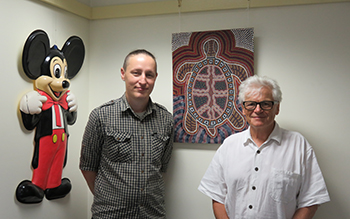GP1 registrars are beginning their first term in general practice training. While some will have had experience in the GP setting during their student years, a greater number will have been engaged predominantly in hospital training and had relatively little exposure to the GP environment.
Feedback indicates that transitioning from RMO placement in the supportive hospital environment, characterized by ample resources such as medical specialist skills and technology, to the primary care setting can be daunting. The registrars need to be more self-reliant on clinical skills and on developing an ability to understand a patient’s psychosocial background, family history and lifestyle practices.
Consider the difference between working in an emergency department and a general practice. In ED the requirement, often under significant time pressure, is to work out a diagnosis and treatment plan and decide whether to admit or not. In general practice a more incremental style is needed. This entails participating in a continuum involving a number of visits that may be required to diagnose and develop a management plan.
As a GP supervisor I question my own ability to impart knowledge to a training registrar or medical student. Their skills in accessing information and research from the best medical institutions in the world are likely to be superior to mine in these times of self-directed learning.
“This incremental approach is likely to be less expensive because of more judicious ordering of tests …”
So what can I teach them? I believe it’s probably more about the art of medical practice rather than the science. How can one approach a clinical case when there are complex biopsychosocial factors to consider? Perhaps experience and wisdom does count for something here.
I have seen a registrar change from being disillusioned with general practice in those early placement days to eagerly embracing the incremental approach to medical care within a couple of months. Often people recover from an illness or injury with the passage of time alone and if they don’t then more clues to the diagnosis will emerge and treatment can be planned, including referrals if needed.
As regards health costs this incremental approach is likely to be less expensive because of more judicious ordering of tests rather than the ‘shot gun’ approach of testing everything in the first instance.
Incremental care involves a long-term approach and is particularly needed for the growing prevalence of chronic disease. The challenge for GP1 trainees is to shift focus from ‘rescue medicine’ to lifelong incremental care.
A recent article by well-respected surgeon, public health researcher and New Yorker staff writer Atul Gawande is recommended. “The Heroism of Incremental Care” would be of interest not just for newcomers to GP training but to all doctors and the team of health professionals they work with.
It would also be helpful if health administrators and politicians could take heed of the importance and relevance of incremental medicine as they look at health costs and the allocation of funding to primary care services.
The current freezing of Medicare rebates is having an impact on GP practices and if continued will lead to less GP services provided for the neediest in our community. This will have consequences for hospital costs when patients with progressing chronic diseases cannot be appropriately managed. Presenting to an emergency department for episodic care is less efficient clinically and is a much greater impost on the national health budget than incremental, and more personalised, care provided by a general practitioner.
So whilst episodic care has a crucial role to play for an acute severe illness, complex chronic disease presentations are best managed with a slower, one-step-at-a-time approach.
Dr Andrew Binns is Clinical Editor of GP Speak.





